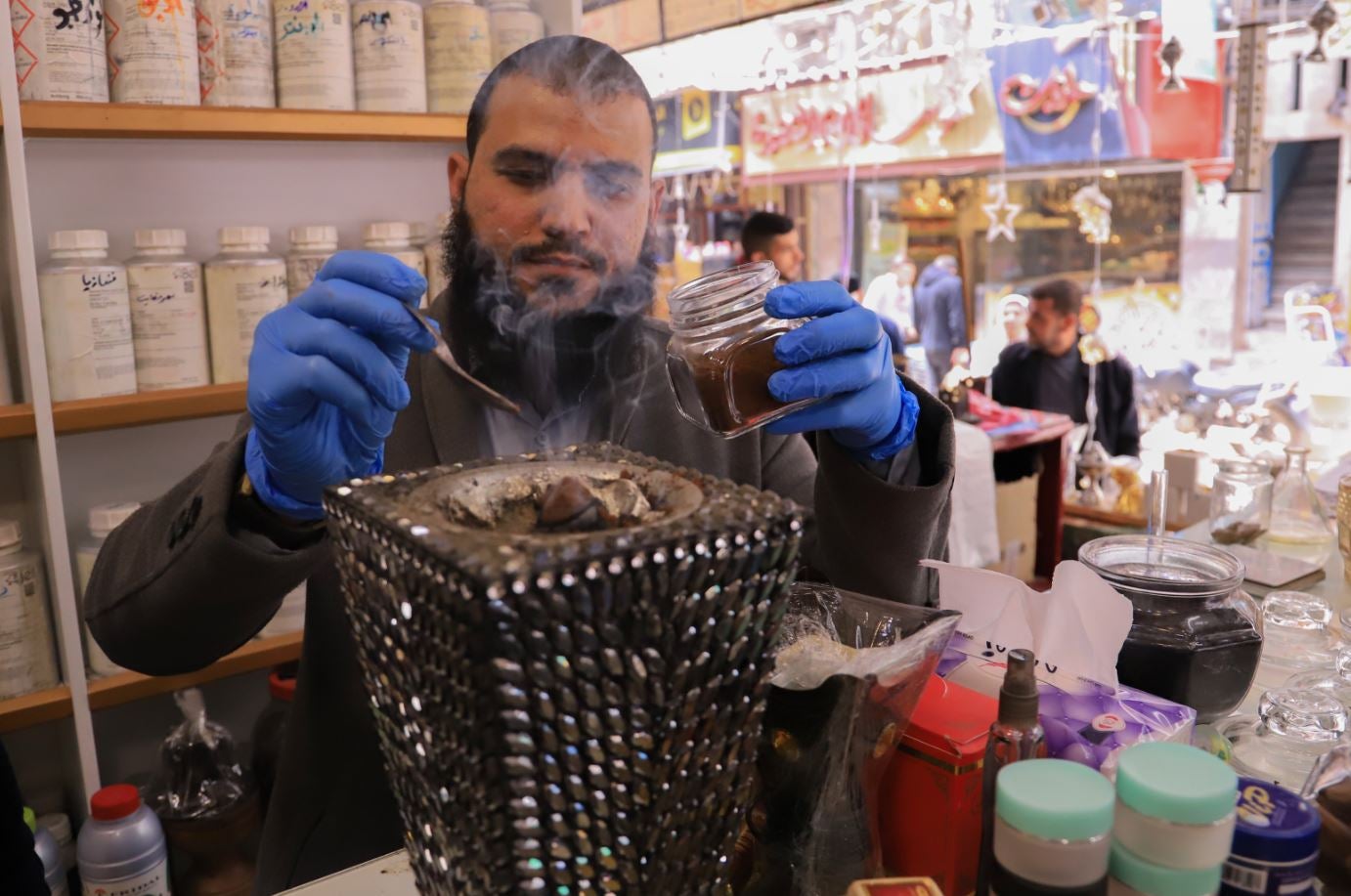Gaza’s emerging incense-making industry
Local production now meets half of the demand for the aromatic that fills the streets of Gaza during Ramadan

This article first appeared in our partner site, Independent Arabia
The scent of incense traditionally fills the houses and streets of Gaza during Ramadan. However, this year, there is a unique and distinct aroma that is a break from previous years.
Palestinian Ibrahim Abu Saraya has successfully created around 15 new varieties of incense, using Gulf and French scents to concoct his signature blends.
Ibrahim works tirelessly at his humble shop, crafting various blends of his unique fragrances to cater to local preferences. Alongside these custom blends, he also produces fragrances to export and sell outside of Gaza.
Gaining popularity
The use of incense in Gaza became prevalent only seven years ago. Prior to that, only small number of people used it; they would bring the aromatic back from their travels to the Gulf.
With the introduction of imported incense, it quickly gained popularity and has now become a common feature in many homes across the Gaza Strip. Locals consider it an essential part of religious events, holidays and the holy day of Friday.
The incense industry in Gaza is emerging and it only really took off after the end of Ramadan last year. Gaza resident Ibrahim was determined to master the art of producing incense, devoting himself to continuous experimentation and refinement of his techniques. Through persistent trial and error, he was eventually able to develop a distinctive and effective method for producing high-quality incense.
Ibrahim developed a deep fascination with the diverse aromatic scents of incense. This fascination motivated him to learn how to create them himself. Over the course of less than a year, he conducted more than 30 experiments, perfecting his techniques until he finally achieved the desired result. He is now producing a variety of locally made incense products.
His extensive experience in aromatherapy fuelled his decision to pursue his current profession. He spent 15 years working in this field, and he developed his knowledge by studying the principles of perfume composition at two schools in France and the Gulf for more than five years. Through his dedication and creativity, he has become a skilled expert in his field.
Ibrahim makes use of traditional and manual methods to complete 80 percent of the incense-making process. According to him, the process begins with spreading out the basic raw aromatic materials, typically including oud wood – locally known as daqqat al-oud. Arabic gum and various types of special musk are added during production, and the final stage involves merging all the components together.
After preparing the incense mixture, he uses a press to shape it into round discs, squares, or sticks. Local buyers can specify the shape they would like for their incense mixture.
‘Made by Palestinian hands’
Ibrahim’s incense production covers roughly half of the estimated 12 tonne annual consumption of the Gaza population. He produces the same amount for external export. His incense products are sold in Egypt, Morocco, and Algeria, and are proudly marked with the words "Made by Palestinian hands".
He has successfully produced around 15 different varieties of incense, each with its own unique aroma. Some popular fragrances include oud, musk, amber, and a range of Gulf and French perfumes.
He highlights to Independent Arabia that creating incense that caters to customers’ preferences demands a profound understanding and knowledge of fragrances, and it is an essential part of his work.
His shop has become a favourite destination for people in Gaza, thanks to the fragrances of incense that attract passers-by. He notes that the community’s trust in his incense is noticeable, given the affordable prices ranging from one to three dollars, depending on the quality of the incense and the materials used in its production.
Ibrahim tailors his incense blends to suit the emotional and psychological needs and states of the people of Gaza. He highlights the powerful influence that the scent and type of incense can have on the human psyche, emphasizing that the choice of perfume should take into account the individual’s mood and its intended use.
Reviewed by Tooba Khokhar and Celine Assaf
Join our commenting forum
Join thought-provoking conversations, follow other Independent readers and see their replies
Comments
Bookmark popover
Removed from bookmarks